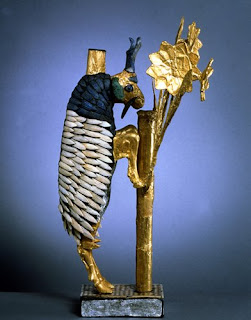
F W Boreham tells how he was at the crossroads in his life and wondering which direction he should take. He records and ruminates upon the advice of his mentor:
‘Can a person be quite sure,’ I asked, ‘that, in the hour of perplexity, he will be rightly led? Can he feel secure against a false step? I shall never forget his reply. He sprang from his deck chair and came earnestly towards me. ‘I am certain of it,’ he exclaimed, ‘if he will but give God time! Remember that as long as you live,’ he added entreatingly—‘GIVE GOD TIME!’
More than ten years later I found myself face to face with a crisis. I had to make a decision on which my whole life's work depended, and I had to make the decision by five o'clock—the hour at which the telegraph office closed—on a certain Saturday evening. It chanced once more that a minister was my guest. But he could not help me. He thought it vastly improbable that God could concern Himself about individual trivialities. ‘The Lord has so much to see to, such a lot of beds in the ward!’ He was inclined to think that a certain element of chance dominated our mortality, that a person was bound to take certain risks, and that life was very much like a lottery. ‘And if a person makes a mistake at a critical juncture like this?’ I asked anxiously. He shrugged his shoulders. ‘And after that the dark.’ I remember with a shudder how my faith winced and staggered under that blow.
But I thought of the sunny morning on the verandah ten years before, and clutched desperately and wildly at my old faith. Saturday came. I positively had not the ghost of a notion as to what I ought to do. At five minutes to five I was at the telegraph office, still in hopeless confusion. At three minutes to five a man rode up on a bicycle. So far as I knew, he was absolutely ignorant of the crisis through which I was floundering. But he told me something that relieved the entire situation, and made my course as clear as noonday, and by five o'clock the message had been dispatched.
Dr. Jowett, of New York, says that he was once in the most pitiful perplexity, and consulted Dr. Berry, of Wolverhampton. ‘What would you do if you were in my place?’ he entreated. ‘I don't know, Jowett, I am not there, and you are not there yet! When have you to act?’ ‘On Friday,’ Dr. Jowett replied. ‘Then,’ answered Berry, ‘you will find your way perfectly clear on Friday! The Lord will not fail you!’ And, surely enough, on Friday all was plain.
One of the very greatest and wisest of all Queen Victoria's diplomatists has left it on record that it became an inveterate habit of his mind never to allow any opinion on any subject to crystallize until it became necessary to arrive at a practical decision.
Give God time, and even when the knife flashes in air the ram will be seen caught in the thicket! Give God time, and even when Pharaoh's host is on Israel's heels a path through the waters will suddenly open! Give God time, and when the bed of the brook is dry Elijah shall hear the guiding voice.
F W Boreham, ‘Lead, Kindly Light’,
Mountains in the Mist (London: Charles H Kelly, 1914), 52-53.
Image: ‘Ram caught in the thicket’.
This statue of a Ram in the Thicket was found Mesopotamian, ca. 2650-2550 B.C. More information at this
Link.
 It is a great moment when a person stands, not over a log of cedar, or a drop of ink, or a bag of gold, but with his very life in his hand, saying to himself, ‘What shall I do with it?’
It is a great moment when a person stands, not over a log of cedar, or a drop of ink, or a bag of gold, but with his very life in his hand, saying to himself, ‘What shall I do with it?’





